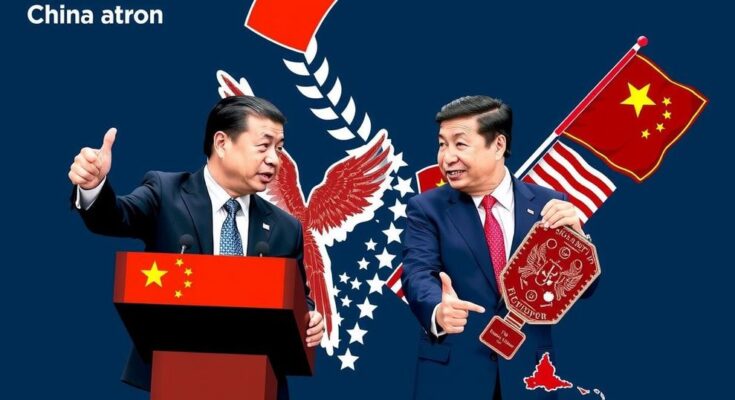Chinese state media highlights U.S. political polarization as America awaits election results, emphasizing potential unrest. Coverage criticizes American democracy, portraying divisions and chaos while suggesting that U.S.-China relations will remain problematic regardless of the election outcome. Many Chinese citizens believe geopolitical strategies against China will persist, regardless of which candidate wins.
As the United States awaits the results of its elections, Chinese state media has seized the opportunity to highlight the growing political divisions within the country. With a clear focus on the potential for unrest following the election, media outlets in China have sought to criticize the American political system, positioning it as chaotic and dysfunctional. Reports emphasize the stark social divisions and the perceived threat of violence, underscoring a belief that regardless of the election’s outcome, relations between the U.S. and China are unlikely to improve. State media such as the Global Times have characterized the electoral process as a spectacle marked by conflict and uncertainty, deviating from its traditional image as a model of democracy. Notably, coverage has pointed to physical preparations in Washington, including heightened security measures, while neglecting the peaceful aspects of voter participation. By framing the situation in this manner, Chinese outlets have invoked a sense of schadenfreude regarding the challenges faced by their American counterparts. Amidst this narrative is the prevailing sentiment among many Chinese observers that the overarching issues affecting U.S.-China relations will persist irrespective of who assumes the presidency. Both domestic and international policies are perceived as aimed at containing China’s rise, leading to a consensus that the election results may be inconsequential to future diplomatic tensions. As indicated by public commentary, the prevailing view in China is that the geopolitical strategies towards China will remain unchanged, irrespective of the election outcome.
The discourse surrounding the U.S. elections has profound implications for international relations, particularly with China, a nation that views the American political climate through a critical lens. Chinese state media serves as a platform for amplifying narratives that portray American democracy as flawed. This criticism is rooted in a historical context where Beijing perceives U.S. rhetoric as hypocritical, especially during periods of heightened scrutiny regarding China’s governmental practices.
In conclusion, Chinese state media’s emphasis on U.S. political strife amidst electoral uncertainty reflects a broader agenda to undermine the credibility of democratic processes. It suggests a calculated attempt to divert attention from China’s own one-party rule by portraying the U.S. as mired in dysfunction and division. This narrative serves to reinforce Beijing’s stance on U.S.-China relations, indicating that tensions will likely continue irrespective of election outcomes.
Original Source: www.cnn.com




